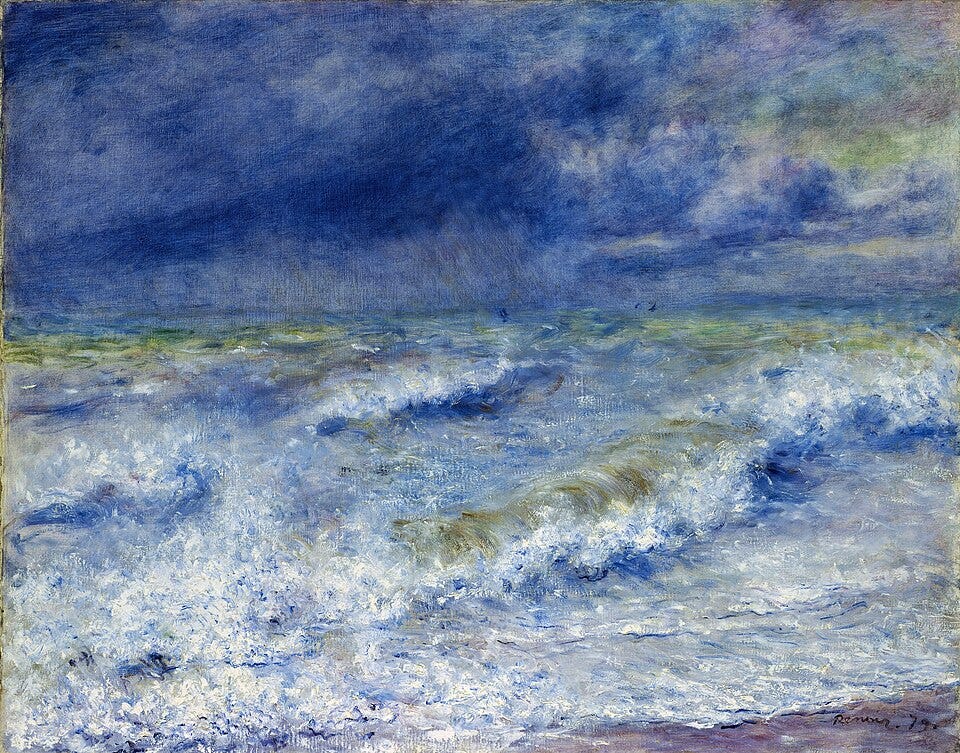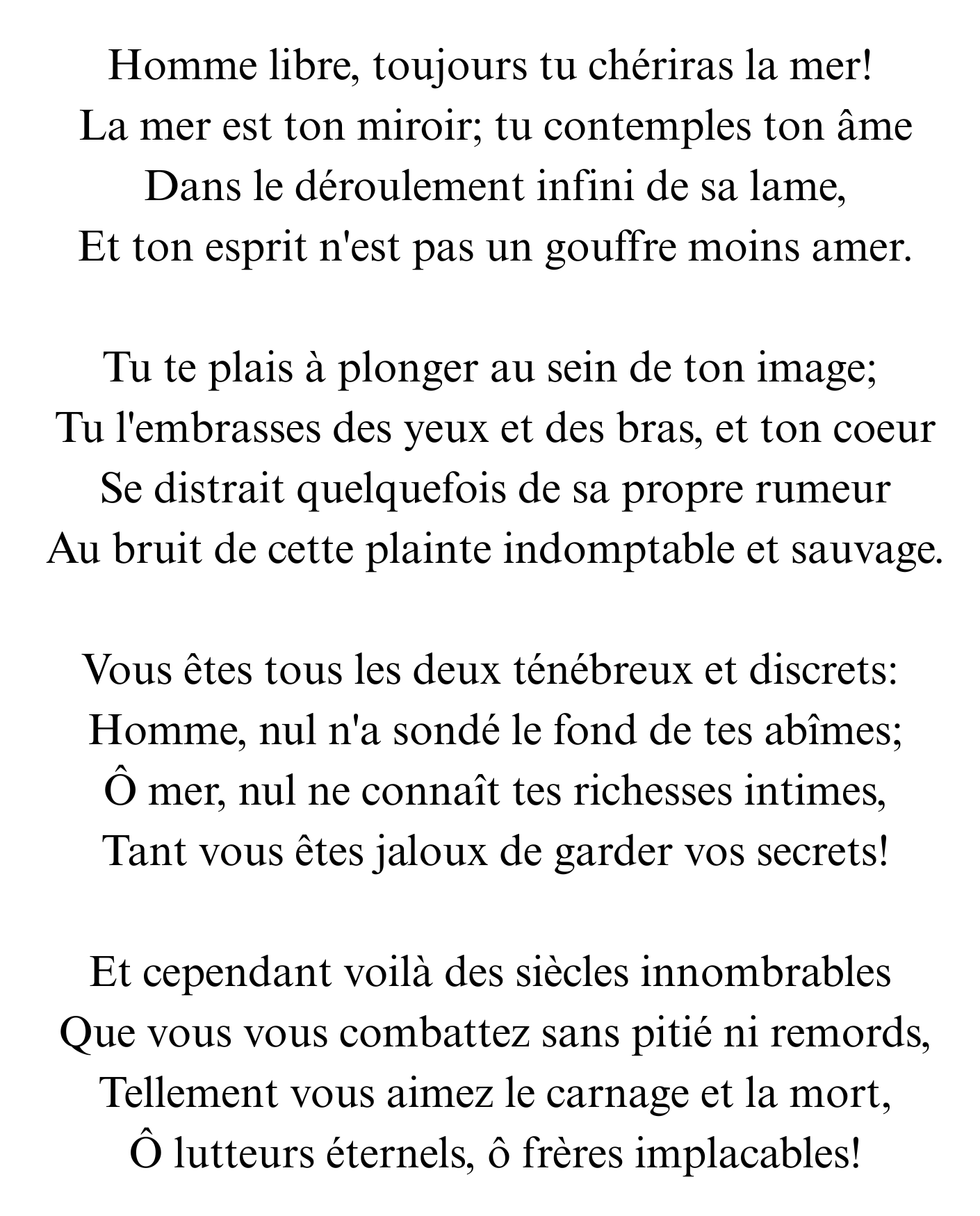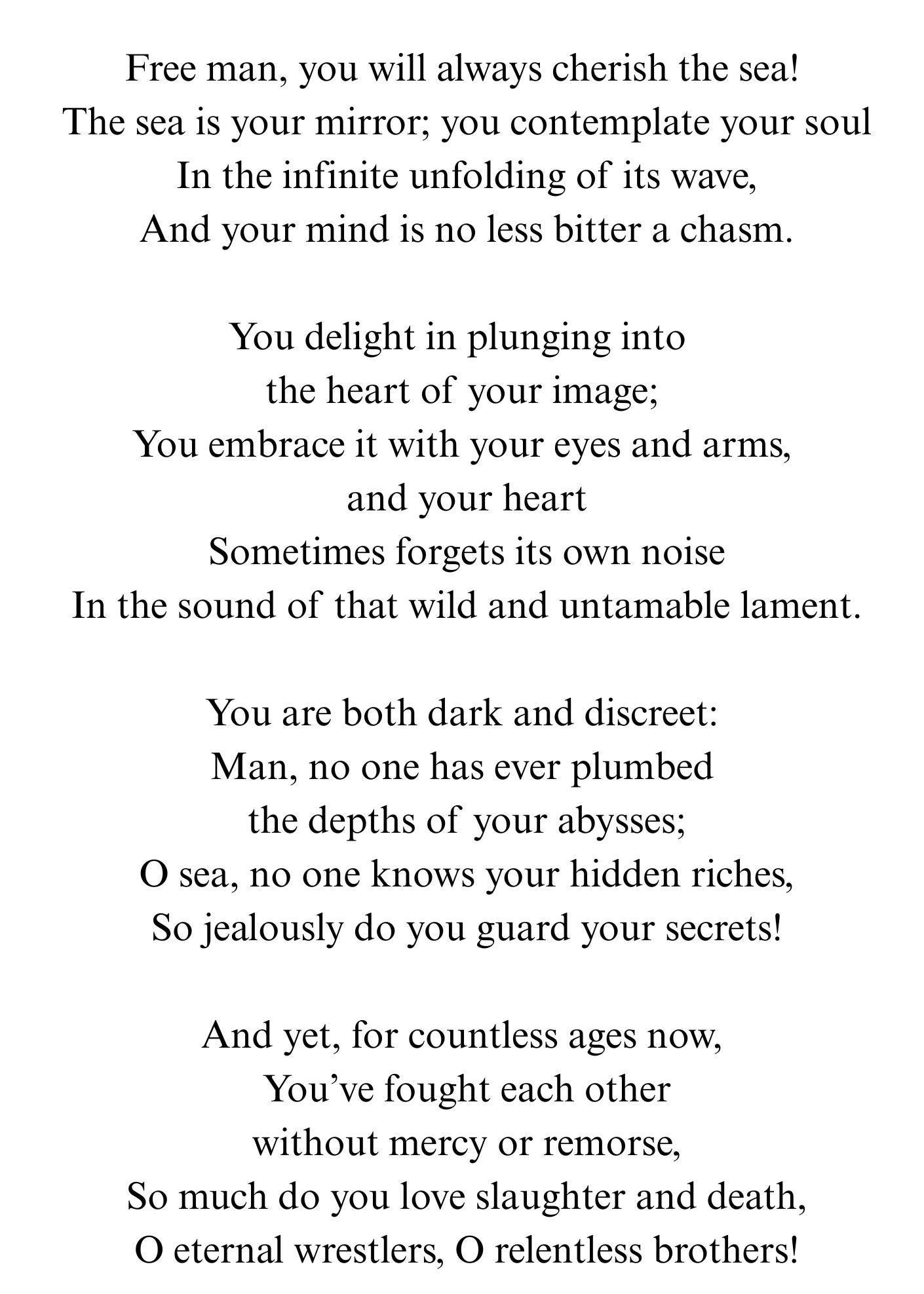À méditer cette semaine
« Il y a un spectacle plus grand que la mer, c'est le ciel ; il y a un spectacle plus grand que le ciel, c'est l'intérieur de l'âme. » — Victor Hugo
"There is a spectacle greater than the sea: the sky; and there is a spectacle greater than the sky: the soul's inner world."
La Chanson à savourer
Le Poème de la semaine
This week’s newsletter is a special one featuring one of my all-time favorite poets, poems, painters, and paintings. I hope they’ll transport you, move you, and stay with you, just as they’ve stayed with me.
Charles Baudelaire – L’Homme et la Mer
From his iconic collection Les Fleurs du mal, this poem dives deep into the mirror-like relationship between man and the sea. Vast, mysterious, and sometimes cruel, both share wild beauty and inner turbulence. It’s one of Baudelaire’s most emblematic poems, rich in sound, symbolism, and rhythm.
Les Paroles :
La Traduction :
A la Rencontre du Poète :
Charles Baudelaire (1821–1867) was a revolutionary French poet whose work transformed modern literature. His masterpiece Les Fleurs du mal explored beauty, melancholy, vice, and the passage of time. His words are sensual, musical, and full of philosophical weight, forever linked to the idea of modernity in poetry.
Vocabulaire clé & Expressions :
Homme – man
Libre – free
Toujours – always
La mer – the sea
Les yeux – the eyes
Le cœur – the heart
Le bruit – the noise / sound
La plainte – complaint / lament
Le secret – secret
Le combat – fight / battle
Sans pitié – without mercy
La mort – death
Le frère – brother
Depuis des siècles – for centuries
Advanced Vocabulary:
Lame – a poetic term for “wave”
Gouffre – abyss, chasm
Sombre / ténébreux – dark, gloomy
Indomptable – untamable
Sonder – to probe, to plumb the depths
Abîme – abyss, depth
Lutteur – wrestler, fighter
Se complaire dans – to delight in (often used reflexively and poetically)
Sans remords – without remorse
Garder un secret – to keep a secret
Se plaire à faire quelque chose – to enjoy doing something
Points de Grammaire :
1. Le futur simple poétique
Tu chériras la mer → You will cherish the sea
Even though this is a future form, it’s often used in poetry like the present, to sound more solemn or universal.
Formation:
infinitive + endings: -ai, -as, -a, -ons, -ez, -ont
→ chérir → je chérirai (I will cherish)
You can try:
→ Je voyagerai – I will travel
→ Tu comprendras – You will understand
2. Le pronom réfléchi (Reflexive Verbs)
Tu te plais à plonger → You enjoy diving / immersing yourself
Reflexive verbs in French are verbs where the subject performs an action on itself. In English, this is often translated with myself, yourself, etc.
For example:
Je me lave – I wash myself
Tu te réveilles – You wake up
How to Form Reflexive Verbs:
Add a reflexive pronoun (me, te, se, nous, vous) before the verb, based on the subject.
Je me lave (I wash myself)
Il se lève (He gets up)
Conjugate the verb normally according to the subject.
Nous nous préparons (We get ready)
Examples:
Se lever – to get up
Se réveiller – to wake up
Se laver – to wash oneself
Se coucher – to go to bed
When to Use Reflexive Verbs:
For actions done to oneself: Je me lave (I wash myself).
For emotions or states: Je me sens bien (I feel good).
In daily routines: Elle se prépare (She gets ready).
Reflexive verbs are common and important in French, especially when talking about personal actions and feelings.
3. Le présent de vérité générale (Present tense for general truths)
The poem uses the present tense to state facts or observations that are timeless.
Examples:
Tu chériras la mer → You will always cherish the sea (futur simple used as a poetic general truth)
Tu contemples ton âme → You look at your soul
La mer est ton miroir → The sea is your mirror
Use the present tense in French to express regular habits or truths:
→ Il pleut beaucoup ici – It rains a lot here
→ Je parle français chaque jour – I speak French every day
Dernière Pensée
Baudelaire’s L’Homme et la Mer is a haunting meditation on how we see ourselves in nature, on the beauty, danger, and unknowable depths that live both in the sea and in the human soul. A poem to return to again and again, like the tides themselves.
See you next week for another poetic journey: Bonne écoute, bonne lecture, et à bientôt.
Morgane
Introducing Contributor, Morgane Andersson
Immerse yourself in all of Morgane’s articles on her Contributor page.









